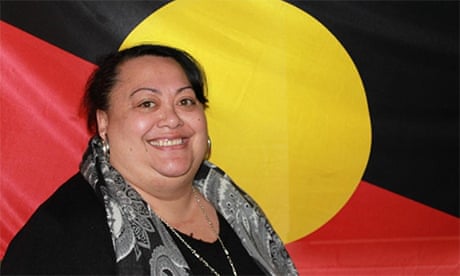Each week, a new guest hosts the @IndigenousX twitter account to discuss topics of interest as Aboriginal and/or Torres Strait Islander people. In partnership with IndigenousX, we're inviting its weekly host to tell us about who they are, what issues they're passionate about, and what they have in store for us during their upcoming week.
Who are you, where are you from, what do you do?
I am a Gunditjmara Aboriginal woman from the western district of Victoria, and an Aboriginal health worker by trade. I have worked in this field for the last 25 years, predominantly within the Aboriginal community controlled health sector. I have been CEO of the National Aboriginal Community Controlled Heath Organisation (NACCHO) for just less than 12 months, and am passionate about the huge impact Aboriginal people can have if they control their own health outcomes.
What do you plan to talk about on @IndigenousX this week?
NACCHO will be launching our 10 point plan for better Aboriginal health this week, so I'll be tweeting about the benefits of having Aboriginal health in Aboriginal hands, and some key insights from our sector.
What issue affecting Indigenous people do you think is most pressing?
The appalling life expectancy rates for Aboriginal people and ongoing poor health in our communities is still a huge issue. A concerted effort by all levels of government has been making inroads in closing the gap, but unfortunately levels of commitment by some state governments seem to be wavering.
Who are your role models, and why?
Aunty Alma Thorpe Victorian Elder – the longest servicing CEO of the Victorian Aboriginal health service in Melbourne – is one of them. Her passion and plight for the rights of her people put me on the path that I am on today. Her daughter Glenda Thorpe was an Aboriginal health worker who treated me – I was 12, and had never been treated in a clinic by an Aboriginal person before. I felt proud. From that day on, I wanted to be like her and do what she does: helping her people.
Culturally, my mother and father provided me with the cultural teaching and learnings along my life journey that provided me with an identity, connection to my homelands and a strength and sense of belonging that makes a good foundation. This ensured me being socially and emotionally well, and gave me a sense that anything was possible.
Michael Woolridge, federal health minister, showed me that there was opportunity when working in true partnership with people – and that innovation and change do occur. Professor Hugh Taylor, an ophthalmologist, has shown me how other Australians' commitment and passion when working alongside of Aboriginal people can result in the greatest of gains.
Aiden Ridgeway becoming a Democrats leader was a proud and inspiring moment in history for Aboriginal people and a testament that Aboriginal people can be at the head of political parties – since then we have seen more Aboriginal people in Parliament. I consider Aiden to be a trail blazer; he worked against all odds through commitment, and made me think that passion and drive can get you there.
I also have to mention Aunty Naomi Mayers, the CEO of Redfern Aboriginal Medical Service, who established the first Aboriginal Medical Service in the country. NACCHO now has 150 members, and it all started because this remarkable woman decided she had seen enough of her people dying younger and getting sicker because of the lack of access to primary health care.
There are countless others who have joined our efforts towards achieving health equality. They are etched in my heart and I will carry them on my sleeve always.
What are your hopes for the future?
Improving Aboriginal health is not a quick fix – it requires a long-term commitment above party politics. We need to prioritise building on the work the 150 Aboriginal community controlled health organisations are already making in their communities. Comprehensive primary health care provided by Aboriginal communities is the key to making a difference to Aboriginal health outcomes.
